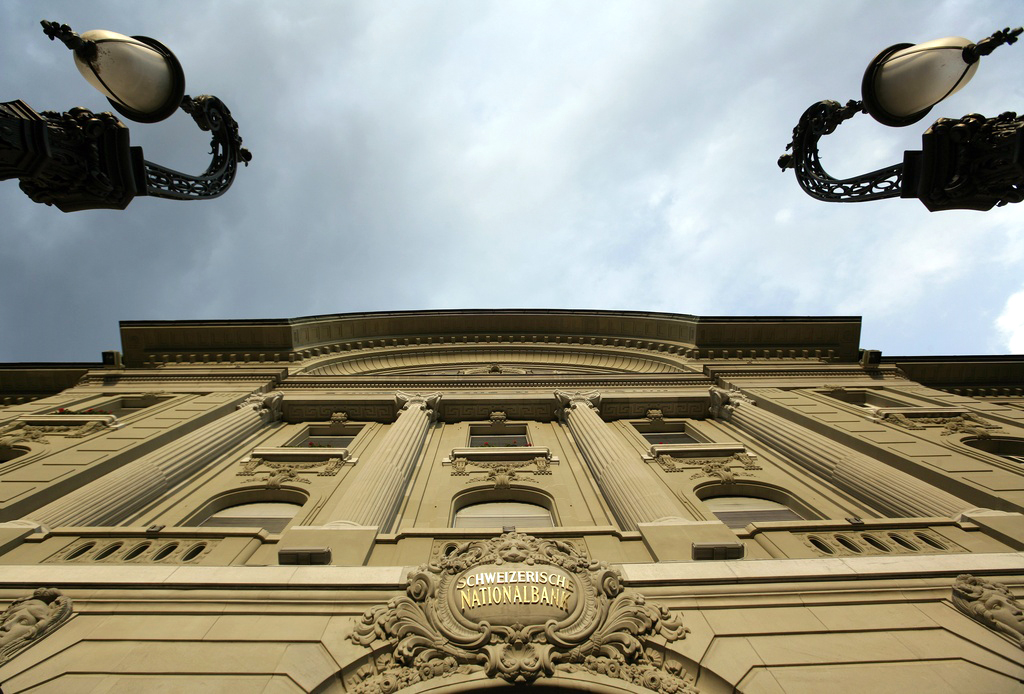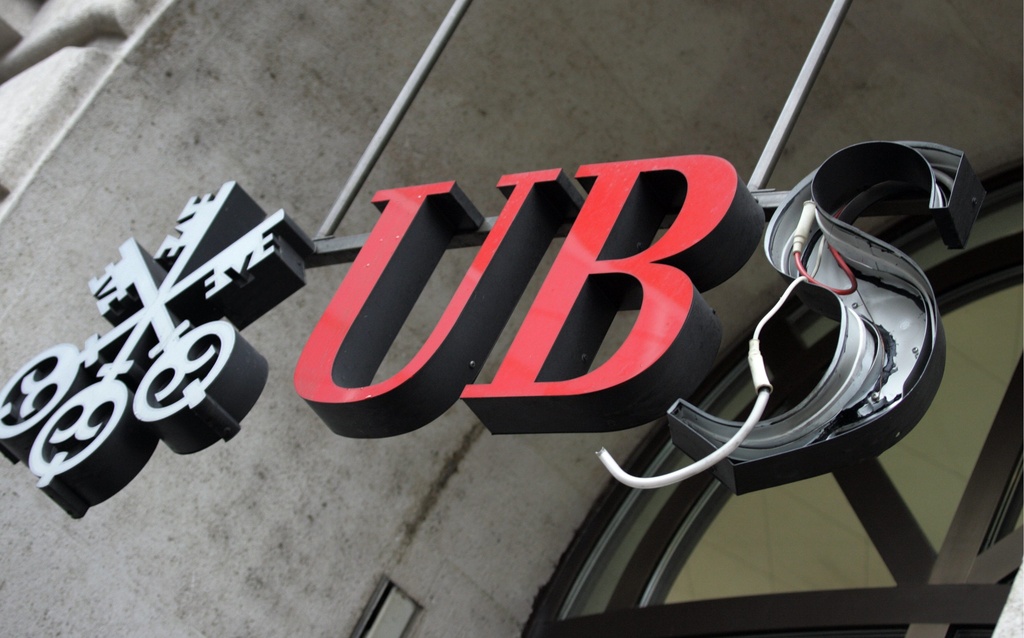Media urge smooth passage of big banks bill

A bill for tougher regulations governing big banks has been largely welcomed by Swiss newspapers which say the measures themselves are “too big to fail”.
But the bill could suffer from political wrangling in this election year, editorialists warn.
Finance Minister Minister Eveline Widmer-Schlumpf presented the bill on Wednesday. Among the key measures (see sidebar) are moves requiring the country’s two main banks UBS and Credit Suisse to bolster their capital standards to protect the wider economy from a future financial crisis.
The bill prompted veiled threats by UBS that it could be forced to move some units abroad. And of the five main political parties, the rightwing Swiss People’s Party rejected the government plans as potentially damaging for the Swiss economy.
The Basler Zeitung newspaper noted that while the rules would give foreign competitors an edge over Swiss banks in the short and possibly longer term, no other country is so dependent on two banks and few countries carry such great risks. “Therefore it is only sensible to reduce these risks.”
“The too big to fail bill is the result of compromise and tough negotiations with the banks. It contains provisions that will not please everyone. But the law should be accepted as it is. Because the bill is so important, it shouldn’t be allowed to fail,” says the editorial.
Marriage contract
The Tribune de Genève welcomed the measures, saying the government showed consistency in adopting them.
“The destiny of UBS and Credit Suisse is irrevocably tied to that of Switzerland. These two banks are the pride of the economy, but they could also be its ruin. It’s normal then that Eveline Widmer-Schlumpf appears determined to introduce a marriage contract for these two sometimes fickle spouses who, for a time, thought they could live the life of confirmed bachelors.”
“Let’s hope parliament, especially in an election year … doesn’t drain the project of its substance for some short-term political posturing.”
Le Temps, in its editorial, similarly asks if political parties will be able to keep a cool head in this election year and avoid making a scapegoat of the finance minister.
“Will they speculate about the eviction of Eveline Widmer-Schlumpf who has competently managed the issue, albeit with little political support? Parties would do well to stay level-headed and to put public interest in the security of the Swiss financial system before the gains of certain areas of the market,” it notes.
The bill is “capable of winning a majority in parliament”, writes the Berner Zeitung. However the newspaper doubts whether the proposed measures will be of much use.
“It is not clear how a banking unit which is crucial to the financial system can be saved in a crisis,” says the newspaper. A proposal should have been added to regulate the splitting-off of the investment arm of a bank in crisis.
“Casino bankers”
The Tages-Anzeiger and Der Bund take on UBS and the rightwing Swiss People’s Party for their opposition to the proposals. Like Widmer-Schlumpf, they wonder whether the two opponents really want to solve the problem.
“UBS of all banks, the bank to which we owe this debate and which brought the country to the brink …[and] the People’s Party of all parties,” it says. The People’s Party “ogles abroad and wants to avert potential competitive disadvantages for the banks. That’s new, for the People’s Party to take EU states as models.”
The Blick tabloid also criticised “casino bankers” who have already been lobbying intensely against tougher new rules. This despite the fact that this plan has been praised by practically all independent experts, it writes.
It argues bankers would like to carry on as usual – with a state guarantee – making money through risky activities, as they did before the crisis which they themselves created.
More bailouts possible
The bill also has the backing of the Corriere del Ticino, which says it is justified given the weight of the two big banks in the Swiss economy.
The Lugano-based newspaper notes that it’s good that the government has drawn lessons from the 2008 financial crisis, when UBS almost went bankrupt. But UBS – in threatening to move units abroad because of the new regulations – seems to have forgotten what happened and needs to be reminded, it says.
The bill also drew praise from the prestigious Neue Zürcher Zeitung. “There are good reasons to insist on standards that are tougher than the global Basel III standards despite concerns by the big banks about their competitive power internationally.”
Nonetheless, it believes the proposals are unlikely to solve the too big to fail problem and taxpayers would most likely have to bail out big banks again in the case of a new financial crisis. “But the new terms for equity capital at least make such an emergency scenario less likely,” it adds.
The proposals stand a good chance of winning approval in parliament and it’s now up to big banks UBS and Credit Suisse to adapt to the proposed conditions, argues the paper.
The cabinet wants both big banks to build up a total capital equity ratio of at least 19%, which is above the minimum set by the Basel III global standards.
The bill includes four key measures: Strengthening the capital base, introducing tougher liquidity requirements, a better risk diversification and organisational steps to ensure the maintenance of vital functions – notably payment transactions – in the case of threatened insolvency.
In an amendment to December’s draft bill, the government now proposes to publish a report on international developments every year to address concerns about Switzerland forging ahead of other countries with its rules and the financial sector potentially losing its competitive edge as a result.
Only in Iceland is the banking sector worth more than the Swiss sector in relation to the total national economy.
In 2007, before the crisis, banks in Iceland were worth 8.5 times the country’s GDP.
In Switzerland this figure was just under eight times GDP.
Despite the financial crisis the combined value of assets at UBS and Credit Suisse alone is currently 3.8 times higher than the Swiss GDP.
The government commissioned a report which was published last September.
In December 2010 an initial draft bill was sent to parties, organisations and institutions for consultation by the end of March 2011.
Parliament is to begin discussions on the bill in June and the amendments could come into force in 2012 at the earliest.
(With input from Federico Bragagnini and Urs Geiser)

In compliance with the JTI standards
More: SWI swissinfo.ch certified by the Journalism Trust Initiative






You can find an overview of ongoing debates with our journalists here. Please join us!
If you want to start a conversation about a topic raised in this article or want to report factual errors, email us at english@swissinfo.ch.